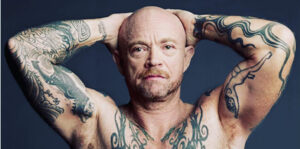Canada has a long history of oppressing its Indigenous peoples. During the colonial era, they were mistreated, excluded, had their land stolen, and were separated from their families. But this past isn’t over; it still shapes the present. In particular, it affects women: more likely to experience violence and murder, indigenous women are the victims of what a government inquiry in 2016 called a “genocide”.
According to the report, at least 1,200 women and girls had been murdered or had just vanished in Canada since 1980 — and the real figure is estimated to be closer to 4,000. Little, though, has been done about it. Three years later, Justin Trudeau finally vowed to act. “We will fail you no longer,” he said to the families of those who have been disappearing at a rate of about 130 a year for the past three decades. And then he continued to fail.
Born in British Columbia, Cherry Smiley grew up among the Nlaka’pamux (Thompson) and Diné (Navajo) nations. A grassroots feminist, she is determined to give a voice to these patronised, victimised women. “There’s this expectation,” she says, “that when you’re talking about murdered and disappeared Indigenous women, you are supposed to cry and turn up with your eagle feather and show these visible signs of pain and trauma. That’s what the government wants to see. And if that is not how you are expressing yourself it’s very easy to ignore you.”
In February, Smiley published Not Sacred, Not Squaws: Indigenous Feminism Redefined, in which she lays bare the roles of culture and tradition in the oppression of Indigenous women and sets out her vision of a feminist future. Throughout the book, she charts what she describes as the “colonisation” of women’s bodies through systems of prostitution. She questions old dogmas – such as that Indigenous men are never abusive to Indigenous women.
The title is deliberately provocative, taking aim at both non-Indigenous people who have internalised racist terminology and stereotypes about Indigenous women, and at those traditional Indigenous men and women who claim “their” women are “sacred”. The idea of “Squaw-ness” — that these women are hyper-sexual, deviant, and dirty — was historically imposed on them. It has resulted, she says, in the normalisation and justification of male violence. Today, the struggle for a reckoning is hard and few are brought to justice.
In 2002, Robert Pickton, a farmer from outside Vancouver, was finally arrested. He had fed a number of his victims — all prostituted, many Indigenous — to his pigs. Police had ignored calls from Indigenous activists and family members to investigate for many years, marking files on the victims with NHI (no human involved). Since he was arrested, the police have claimed the investigations of missing and murdered women is a “strategic priority”. But a reckoning isn’t coming. It took five years for Pickton to be convicted, and women are still being picked up from roadsides and raped, killed, dumped in rivers and landfill, or burned.
The inquiry wouldn’t have been launched were it not for women like Smiley seeking justice for other women. But before long, it was expanded to include all the categories of what Trudeau has referred to as “2SLGBTQQIA+ people” (Two Spirit, lesbian, gay, bisexual, transgender, queer, questioning, intersex and asexual). No longer just about female victims, a small number of missing and murdered men have been included too.
“Trudeau is playing to an audience of so-called progressives, which has resulted in the national inquiry becoming about all murdered and disappeared Indigenous peoples, rather than exclusively about women,” says Smiley. “This inquiry that we fought so hard for was supposed to focus on women. Why can’t men have their own inquiry, and leave us to have ours?”
Smiley’s book burns angrily through this issue, setting out her vision for the liberation of all women, and challenging the idea that “white feminism” has no relevance to Indigenous women. In particular, she explores the way in which many Indigenous men have betrayed women by embracing patriarchal norms. “I used to say that patriarchy was imposed upon Indigenous men,” she says. “And now I say that Indigenous men adopted it because it benefited them.” Before Indigenous peoples were colonised, she explains, there was still male violence. “But it was different, and from what I understand from the oral traditions, gender roles were a lot more fluid… because you need to survive when living in very harsh conditions.” But that all changed with the arrival of the colonists.
Her book is based on her PhD thesis at Montreal’s Concordia University, where she quickly became disillusioned with the censorious and anti-feminist climate in academia. Despite being labelled both a Swerf (sex-worker-exclusionary radical feminist) and a Terf, she is defiantly unapologetic: “I hate academia, and the consensus is that the feeling is mutual,” she laughs, calling the university a “manstitution”.
She is deeply critical of what passes for feminism within academic Indigenous circles. The trouble, she suggests, is that some Indigenous women are strongly opposed to revealing the truth; many claim that Indigenous men are not violent towards Indigenous women, that white men are the only perpetrators of such crimes. “When we understand that Indigenous women are not simply conduits for the violence of colonisation, we can more accurately name the violence perpetrated against Indigenous women as femicide, as opposed to genocide” — that the victims are marginalised by their sex as well as their cultural heritage.
“In Canada, such women argue that ‘decolonisation’ can be achieved via a return to Indigenous cultural traditions.” Smiley is particularly angered by the defence of harmful practices towards women in the name of “tradition”, such as banishing women and girls to a purpose-built hut during menstruation. For her, it is irrelevant whether or not this happened “back in the day”, because “it is wrong, so why should we accept it now?”
While cultural relativists are justifying aspects of Indigenous culture that feminists are resisting — such as male violence and social control — some who might call themselves progressives are busy attributing fake meanings to ancient Indigenous terms. They have, for example, rewritten terms such as “Two Spirit” to mean “a third gender”. In fact, says Smiley, the term was created by lesbians and gay men in the Nineties to describe an Indigenous person who is same-sex attracted.
Smiley facing criticism from her own community for refusing to keep quiet about the male violence within it. She has also been slammed by so-called “progressive academics” for speaking out against queer theory and cultural relativism. Smiley has been left an outsider, which has been hard for her to bear.
But her feminism and the fight against male violence drives her forward, despite the slings and arrows that come her way. “Indigenous feminism is not about preserving men’s right to their ‘culture’ when it harms women, or to protect them from criticism. It is about liberating women.” Smiley is determined that her movement, the quest for women’s liberation, will not be destroyed by modern-day misogynists. “A systemic mass violation of Indigenous women has been inflicted on us since colonisation began, so we will not let it happen to us in the name of progress.”
Disclaimer
Some of the posts we share are controversial and we do not necessarily agree with them in the whole extend. Sometimes we agree with the content or part of it but we do not agree with the narration or language. Nevertheless we find them somehow interesting, valuable and/or informative or we share them, because we strongly believe in freedom of speech, free press and journalism. We strongly encourage you to have a critical approach to all the content, do your own research and analysis to build your own opinion.
We would be glad to have your feedback.
Source: UnHerd Read the original article here: https://unherd.com/




